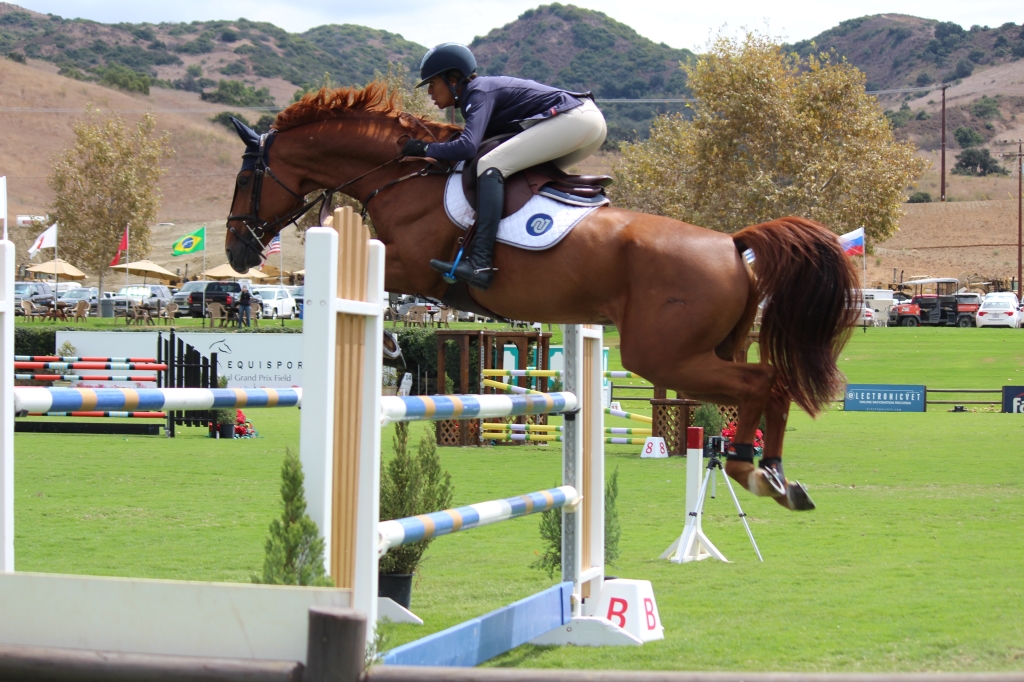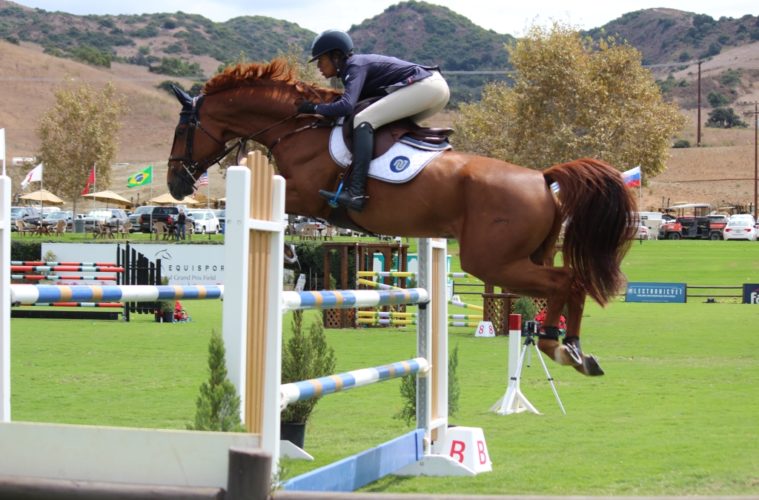“ISO: five to eight-year-old fancy gelding for the children’s hunters. Must be over 16.1h, lots of chrome, can take a joke, kick ride, auto lead change, SOUND and have show miles. Budget: 10k.”
I sell horses for a living. I have a unique program with a wide range of hunter jumpers that come through my barn each year. A typical year for me consists of selling anywhere from 20-30 horses. I sell a wide variety of horses as well; I get a lot of unbroken two to three-year-olds to get started under saddle, AQHA over fence horses, newly imported hunters and everything in between. Some are my personal sale horses, and some are client horses sent to me to sell.

Photo by Alissa King / JN
My absolute favorite request is when someone sends me a text or a Facebook message like the one stated above, essentially looking for a unicorn with an inadequate budget. There might be one or two of those running around that can be purchased through a “fire sale” or a unique situation causing the horse to be sold under market value, but for the most part, good horses cost money. I’ve said it before, and I’ll say it again. When looking for a horse, you have a few options: sane, sound or cheap, but you can only choose two.
Why Are Horses So Expensive?
I get it. Horses are stupid expensive. Sometimes I literally spend more purchasing horses than purchasing a car. Let’s forget about the high maintenance costs after the sale, the purchase price of a good useful horse is high. However, it’s just like anything else in life: you get what you pay for.
Let’s break down some average costs of a horse if I purchase a horse for resale. I will base these numbers off of 6 month turn around.
Initial purchase price: $6,000
- Assume I buy a decent young horse (three or four years old). Most of the time these horses are standing in a field and are feral, untouched, or have been barely broke out.
Vetting: $700
- I’m going to get at least a few x-rays and a standard vetting to ensure I’m able to sell it later on. This is also a benefit to the buyer, because I release the x-rays for their vet to view, often saving them time and money before they purchase the horse.
Hauling $700
- I buy horses from all over the country; an average haul bill is around $700.
Monthly feed costs: $225 (6 months equals $1350)
- I live in a rural area with low feed and hay costs. I feed a high-quality diet but can do so at a reasonable rate. This is the average monthly feed cost per horse.
Farrier $150 per visit (five visits = $750)
- Again, living in a rural area, my farrier costs are quite reasonable.
Veterinary costs $1200
- Standard vet costs such as teeth floating or vaccination. We all know that horses are prone to injuries and vet bills can vary GREATLY.
Assuming all goes to plan (comical, I know) using these numbers I have already invested $10,700 into this horse. I usually take my babies to a few shows so that I can more accurately determine what kind of rider this horse will need to be finished and what kind of rider suits this horse. These numbers also don’t take into consideration any of my training or personal time. If this were a real scenario, I would make zero profit for my time and training if I sold the horse for $10,000.
Choosing What You Can and Can’t Live With
While I understand these are “what if” numbers, they are a good representation of the investment that I make in a horse that I have purchased to resell. This is why good, professionally trained horses are expensive. This is why if you want a sane, sound horse that won’t dump your kid every other ride, you are going to have to make an investment.
I understand not everyone has a high budget for a kind, broke horse. My first horse was a wild OTTB given to me by my trainer because she didn’t want to mess with it any longer. If you’re dealing with a low budget, then you will have to decide what you can “live with” when purchasing a horse. Maybe it won’t pass a vetting; maybe it has a sticky lead change or can’t get down the lines; maybe it is super green and will need lots of training.
Whatever its “hole” may be, if you are on a low budget you will have to be realistic about what will work for you or your child. When shopping, keep in mind all of the professional hours that was put on a horse to make the horse the reliable show partner it is today. This is a luxury sport, and unfortunately, it’s not getting any cheaper. As always, working with a professional who has your best interests in mind will greatly benefit you while you are shopping for your very own unicorn.

